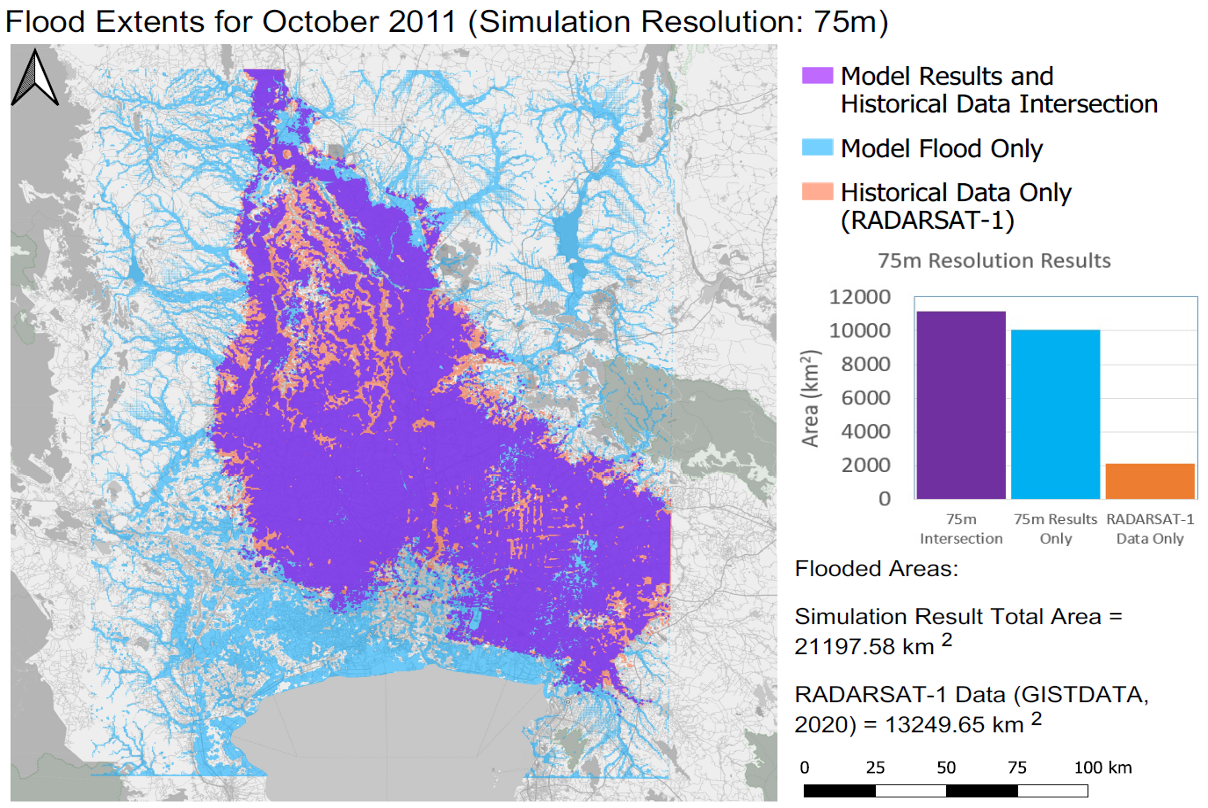A China-Australia project is conducted to develop integrated tools for climate adaptation and disaster risk reduction, with focus to help developing countries with affordable tools and access to high-quality data and modeling systems related to disasters caused by climate change.
The project is led by Prof. CHEN Fang from the International Research Center of Big Data for Sustainable Development Goals (CBAS) and the Aerospace Information Research Institute (AIR), Chinese Academy of Sciences (CAS), together with his counterpart, Prof. Mahesh Prakash from the Commonwealth Scientific and Industrial Research Organization (CSIRO).
Taking different cities from China, Australia and Thailand as study cases, the project uses flooding data and climate-related flood adaptation model to demonstrate the development of the integrated capability in remote sensing and computational modeling. Case studies in different countries demonstrate the usefulness of the integrated flood modeling and mitigation approach.

Distribution map of simulated flood extents in Greater Bangkok, Thailand. (Image by AIR)
By integrating ground observation data, multi-source space-borne earth observation data and simulated data, the key sensitive factors of climate change in study areas, such as temperature, precipitation, vegetation cover, hazard, and risk information were extracted.
The researchers proposed the framework integrating catchment and coastal flood modeling (spatio-temporally dynamic), including sea level rise, to provide a holistic inundation model for future flooding. They mapped major natural disaster risks in sensitive areas to reveal the correlation between the distribution of disasters and landform, drainage system and altitude, and the response mechanism of annual changes of major natural disasters to climate change.
The research results of the project can be widely used to provide a quantitative basis for analyzing the outcomes of implementation of disaster mitigation strategies.






